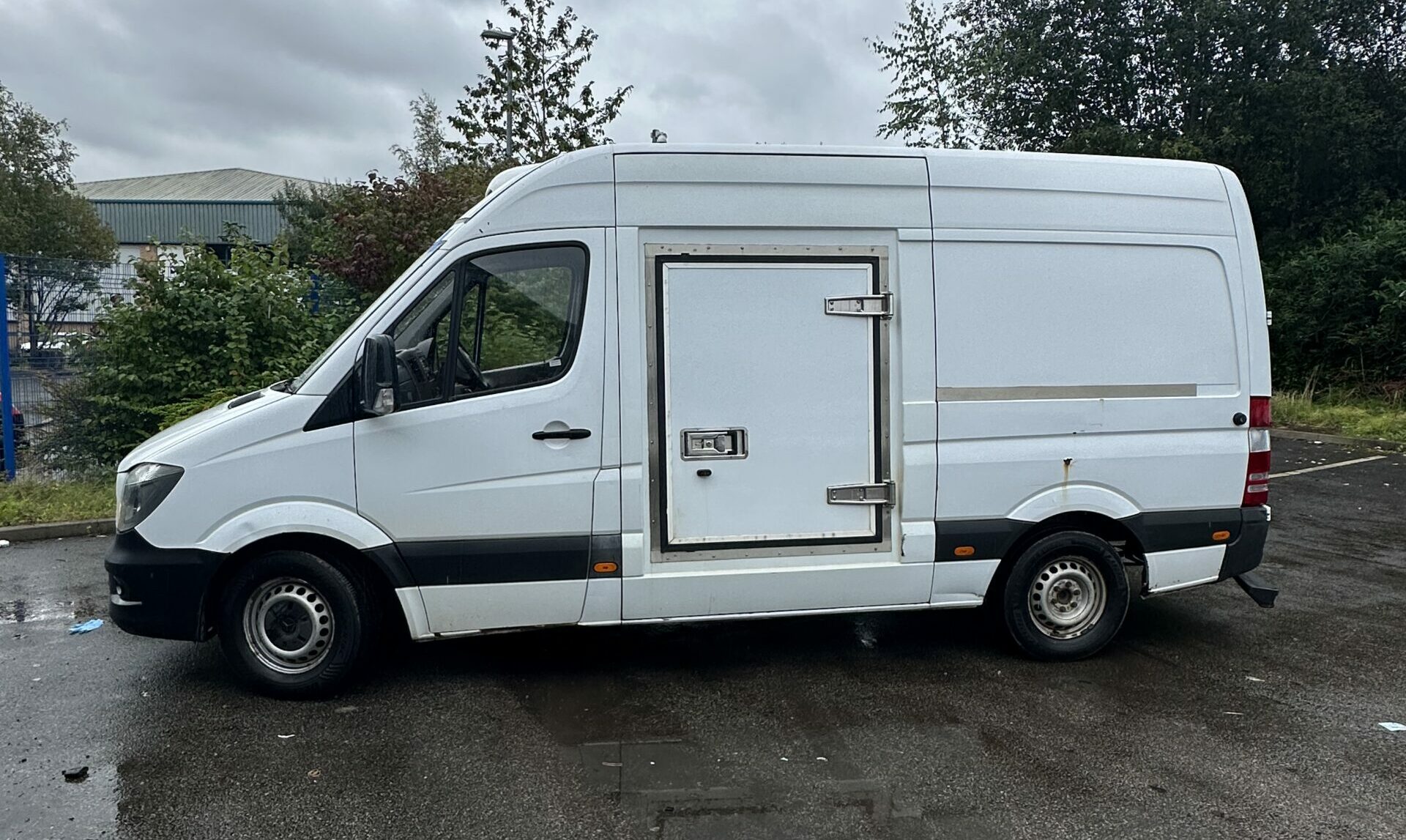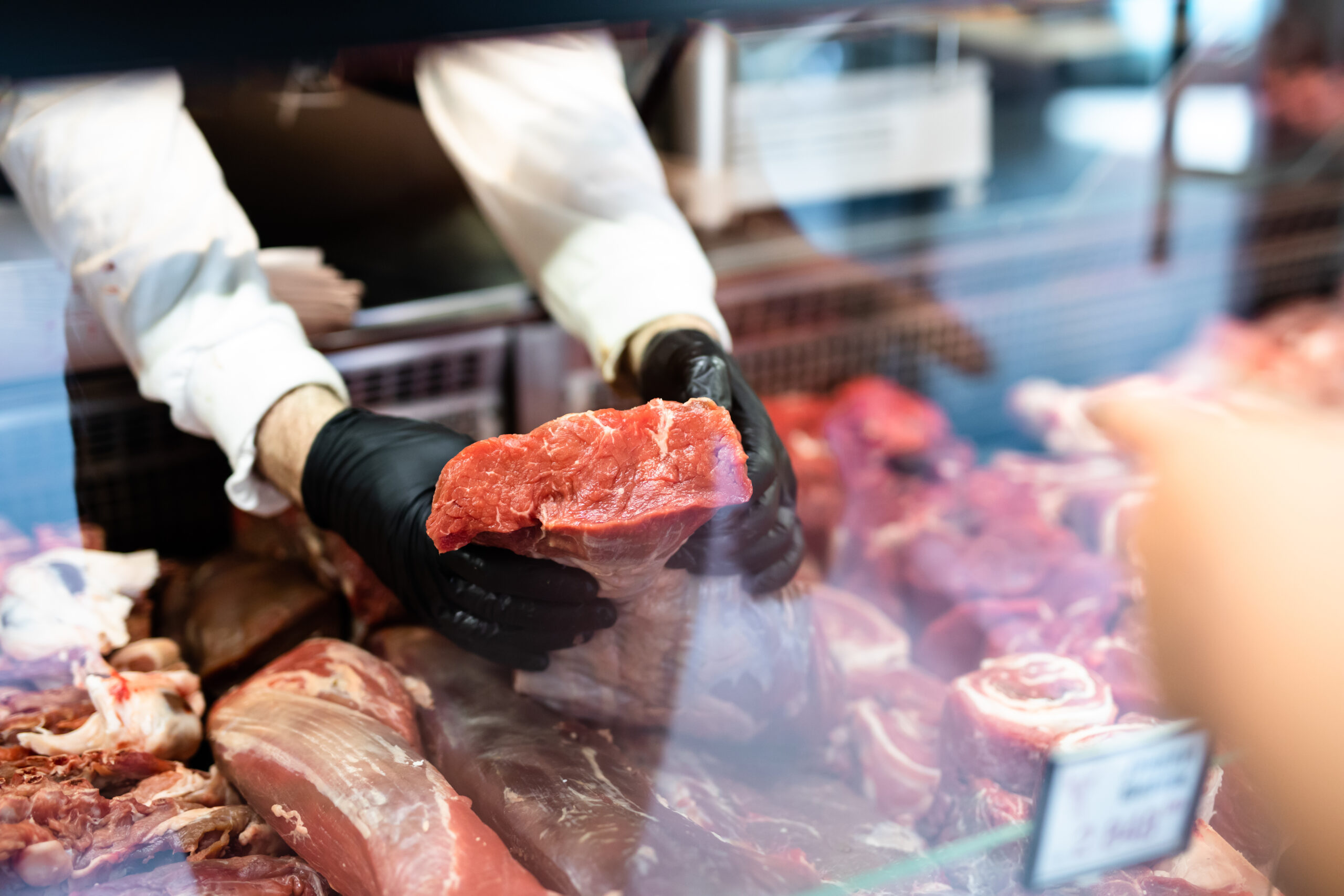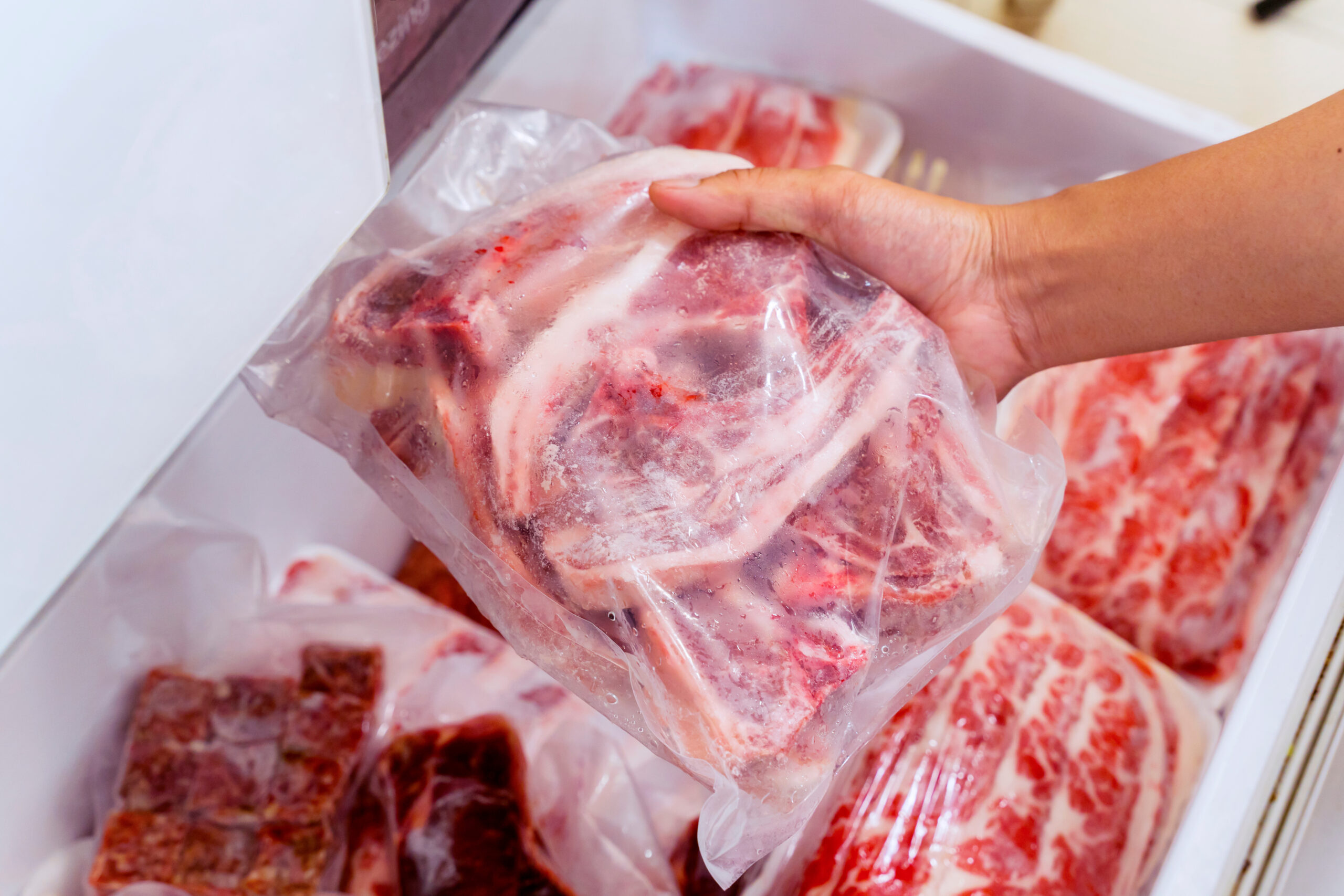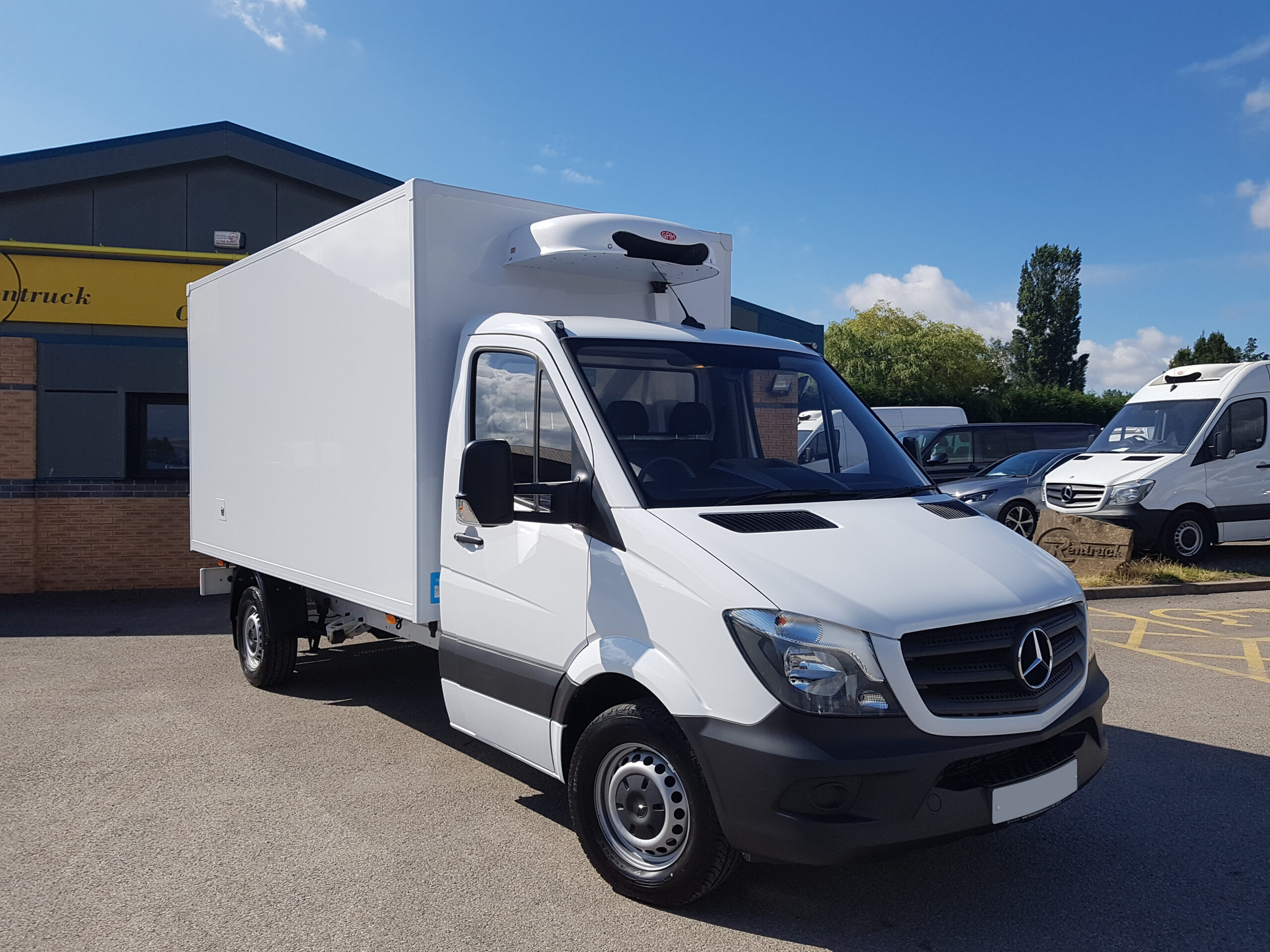The British meat industry is one of the largest industries, generating £8.2 billion annually in the UK. For butchers, the efficient transportation of meat products across the nation is paramount to their success, whether delivering to local restaurants or supermarkets. However, for the meat industry, strict health and safety regulations are of the utmost importance for butchers, with meat products being highly perishable and susceptible to food-borne bacteria. This is where utilising refrigerated vans becomes the answer for many butchers, allowing for the safe arrival of prepared meats to their desired destination.
In this blog, we will discuss the role refrigerated vans play and the need for them, exploring their benefits to the meat industry and butchers alike.

Understanding the role of a butcher
The main role of a butcher is to prepare a variety of meat products for sale to trade or the general public. Butchers receive whole animal carcasses from farms, with which they break them down into more manageable pieces of meat or products such as sausages and steaks.
Most importantly, butchers must crucially ensure that the quality and safety of the meat are maintained, from first receiving the animal to distributing it across the country. Butchers must inspect the meat, checking for signs of damage or any undesirable sections, ensuring that only the best quality of meat is to be served. Proper handling, labelling and sanitisation must always be carried out, taking all measures to ensure no cross-contamination between meats. For example, beef and poultry products should not come into contact with one another, along with cooked meats or raw meats.
After the correct and safe handling of meats is carried out inside the butchers, it is just as important to ensure this level is maintained during transportation. This is where refrigerated vans come into play.

How butchers use refrigerated vans
Refrigerated vans are specialised vehicles, designed for the safe and efficient transport of perishable goods, such as food, flowers, and medicines. They work by absorbing outside heat and cooling systems to maintain a constant temperature inside the vehicle. Using refrigerated vans is a more reliable method of transporting perishable goods as they allow temperature control from the front seat, guaranteeing the freshness of products for longer periods over further distances, without fear of spoilage.
The benefits of refrigerated vans for butchers
Freshness and Quality
The primary benefit of refrigerated vans for butchers is they ensure that the freshness and quality of products are maintained throughout their journey. For meat products, it is integral that they are kept refrigerated at their optimal temperature to prevent spoilage and the growth of food-borne pathogens.
In the UK, all chilled food products, such as poultry, beef, pork, lamb and fish, must be kept at 8°C or below, but best practice recommends below 5°C.
For frozen food products, they must be legally stored at -12°C, but best practice recommends -18°C.
Read ‘Guidance on Temperature Control Legislation in the United Kingdom’ for more information on food hygiene regulations in the UK.

Proper temperature control prevents the growth of food-borne pathogens, such as bacteria, yeasts and mould. When food is stored outside its optimal temperature, the volume of bacteria can double within just 20 minutes. If consumed, these bacteria can cause illnesses such as salmonella or campylobacter. These diseases are not only harmful to the general public but can be even more harmful to at-risk populations such as older adults, infants, pregnant people, and immunocompromised people.
Temperature Control
A key difference between refrigerated vans and general vans is the ability to control the van’s internal temperature. Many refrigerated vans, such as the VW Caddy Temperature Controlled Van, have in-cab controls to allow for the easy monitoring and adjusting of temperatures from the front seat. This gives the driver, supplier and receiver peace of mind that all the stock has been kept refrigerated at its optimal temperature, and food-borne pathogens will not have been able to grow.
Through the efficient control of temperature, meat products can extend their shelf life during transportation, meaning less waste is generated, leading to butcher’s profits growing, and customer satisfaction and loyalty increasing.
Hygiene and Safety
By utilising a refrigerated van, the various methods of storage, for example, shelving, means separating products is made easy. Raw and cooked meats should always be stored separately, along with different types of meats such as beef and poultry. With a refrigerated van, butchers can be sure that their prepared products are stored safely, and that no cross-contamination will occur during transportation.
Refrigerated vans are also easy to clean between deliveries so if any product such as juices from the meats do spill out, they can be quickly cleaned and sanitised for the next delivery.
Considerations for butchers when buying a refrigerated van
As a butcher, if you are looking into purchasing a refrigerated van, there are some key essentials you should consider to ensure you find the right vehicle for you and your business.
Size and Capacity
Refrigerated vans come in a variety of sizes and capacities, each ideal for smaller or larger businesses. For example, the Mercedes Vito Small Van has a payload capacity of 930kgs and a load area height of 1.1m. This van is ideal for smaller jobs with less cargo over shorter distances. On the other hand, there is the Mercedes Sprinter Luton Box Van, which has a payload capacity of 1060kgs, and a load area height of 1.9m.
When considering your refrigerated van options, take into account your volume of daily stock and the length of journeys you would typically cover.

Temperature Range
As we discussed earlier, different meat products will require various temperatures at which to store them. If you are delivering frozen goods, you will require a refrigerated van with low-temperature capabilities. For example, the Mercedes Sprinter 314 LWB can reach temperatures as low as -25°C, perfect for frozen deliveries.
Consider your stock and what you will typically be delivering, whether it be fresh or frozen produce, and find a van with your ideal temperature capabilities.
Cost and Financing Options
The final consideration butchers should make is whether they would like to buy, hire, or lease their refrigerated van. The upfront cost of buying a refrigerated van may not suit some businesses’ expenses or budgets, so initially hiring might be the best option. If you are confident that the profits gained from utilising a refrigerated van will outweigh the upfront costs, then buying a refrigerated van will be more cost-efficient in the long run. At Cool Running Rental, we offer flexible term leasing, vans for hire and vans for sale, including second-hand vans.
Contact us to speak with a member of our expert team today for a free quote on leasing, hiring or purchasing your own refrigerated van.




